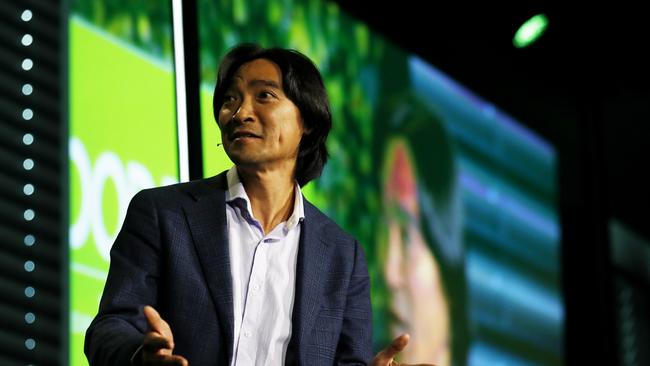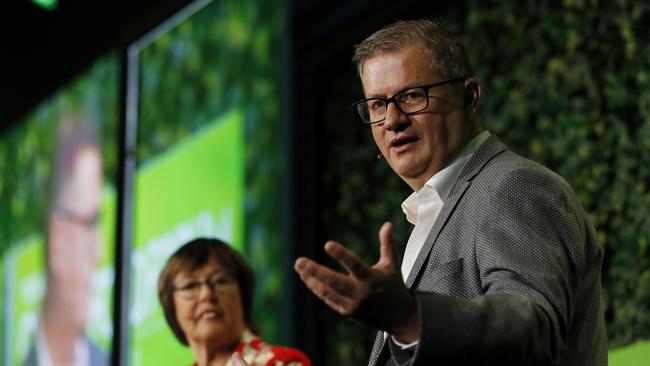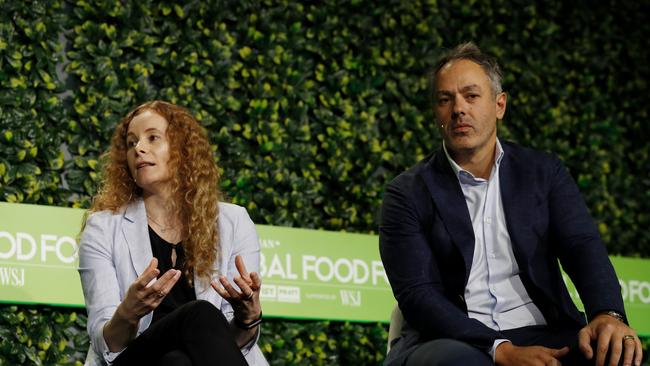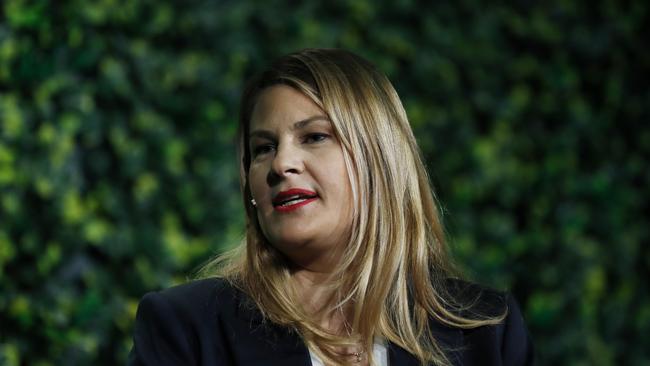Australian Food businesses not giving up on China
Despite its punishing trade-war tariffs, Australia’s food exporters are still looking to China for growth, but are also hedging their bets by looking for new markets.

Australian food exporters are still targeting China as a growth market despite trade tensions effectively locking some out through punishing tariffs.
But food companies were also stepping up efforts to look at alternative markets including Japan, the UK and the US, given their wariness about the risks of potential trade retaliation in China.
Bubs executive chairman Dennis Lin said there was still strong demand for Australian infant food products in China which could be accelerated by this week’s announcement of a new policy to encourage Chinese to have three children.
Speaking at The Australian’s Global Food Forum, presented in partnership with Visy, Mr Lin said Australia was still seen as a source of “clean and green” products in China.
“The tariffs have changed and some of the regulations have changed...But the underlying supply and demand is still there”.
His comments follow intensifying tensions between Canberra and Beijing, which seen punishing tariffs imposed on Australian barley, wine and lumber exports worth billions of dollars.
Mr Lin said Bubs, an infant milk powder producer, had taken 12 months to redo its distribution channels into China given Covid had stopped Australian-based Chinese shoppers, many of them tourists and international students, who buy product to send home to friends and family.
Having re organised its distribution channels to ship more product directly into China, he said there was still a strong demand for Bubs products there.

The chief executive of Andrew Forrest’s private investment company Tattarang, Andrew Hagger, said that trading with China would continue to be as important for the Australian food and agriculture sector as it was for the mining sector.
He said Tattarang’s exports of beef to China, through its Harvey Beef division, had been hit by action taken against Australian meat processors by Chinese authorities last year.
But he said China still remained an important market for the company’s beef.
He said the Tattarang was also looking to see if it could export Akoya shellfish from Albany in Western Australia to China, a business bought by the company last year.
“We are looking forward to introducing the Akoya (products) to consumers all across Asia,” he said.
Chantale Millard, the chief executive of Maggie Beer Holdings, said her company was looking to sell some of its organic products to China.
“We got our organic certification for China last June, just as everything started to get a bit tense,” she said.
“We’ve still got some opportunity (in the market).”
“We’ve got lots of growth in Australia but we have an export person now which we never had before.”
Adem Karafili, the executive chairman of Top Shelf International, said his company had just started selling its whisky into China.

“We’ve heard what happened with the tariffs and the wine industry,” he said.
“It’s really left an opportunity for the spirit market because we are not affected by that.”
“We’ve spent the last 12 months setting up a business plan and model with our social media and all those things going into China.”
Michelle Geber, the chief executive of Barossa Valley wine company Chateau Tanunda, said her company had been exporting up to 20 per cent of its production to China before it was hit by punitive tariffs along with other Australian wine makers last November.
The decisions was subsequently affirmed by China’s Ministry of Commerce, earlier this year which said the tariffs would remain in place for the next five years.
“It was pretty devastating and affected our ability to export,” she said.
But she said Chateau Tanunda had already been considering the need to diversify its markets for some time before the imposition of the Chinese tariffs.

“We’ve really needed to make moves and look at other markets,” she said.
“Greater Asia is something we are quite excited about.”
She said Chateau Tanunda was also looking at stepping up its exports to the UK and Europe.
Mark Van Dyck, the regional managing director of the Compass Group, which has more than 3,000 staff in China and operations in ten countries in Asia, said there had been a big increase in demand for high quality premium foods in China in the wake of the Covid-19 pandemic.
“Even before the pandemic there was a growth in interest in health and a quest for quality premium healthy foods,” he said.
“That has increased significantly after the pandemic.”
“It is a massive opportunity for Australia Post the pandemic in China and Asia overall.”
He said more work needed to be done on developing a Brand Australia to sell Australian food products into Asia.
“We need to do more work on that,” he said.
“We haven’t done that strongly enough.”
“There are great examples in other countries such as New Zealand’s 100 per cent pure.”
“It’s an incredibly strong approach.
“We need to get serious about it.”
Bubs’ Mr Lin said the fundamentals of the Chinese market remained attractive.
For his business he noted there were 12 million babies born in China each year compared with only 250,000 in Australia,
There could be further growth with the announcement of a new policy in China this week to encourage Chinese families to have three children, another significant relaxation of the one child policy which had been in force in the country until recently.
Mr Lin said there was also potential to expand the products which Bubs sold into China.
“If we are providing nutrition to the most precious member of the family (the baby), that brand can have a lot of extensions into providing family nutrition and moving into vitamins,” he said.
But he said there was also potential for Bubs to expand into other markets including the US where there was increasing focus on the certification of where food had come from.




To join the conversation, please log in. Don't have an account? Register
Join the conversation, you are commenting as Logout